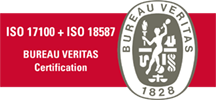Certified translation in Braga: fast, accepted, and hassle-free for expats
Certified translation in Braga is often required for visas, studies, and civil registry updates. This guide explains when you need it, who can issue it, and the exact steps to get it done correctly.

Table of Contents
When you actually need a certified translation in Braga
If you have foreign documents to submit to Portuguese authorities—SEF/AIMA, universities, or civil registry—there’s a good chance they must be translated and validated. A certified translation in Braga is the format institutions request when they need an official, traceable translation that can be checked against the original.
In Portugal, certified translations are typically issued by a professional translator and validated by a notary, lawyer, or competent authority. For scope and acceptance, review M21Global’s overview of Certified Translations and the broader Translation Services offered to organisations and individuals.
If your case is legal—contracts, court submissions, powers of attorney—pair the translation with legal expertise. See our dedicated Legal Translation service to ensure terminology and formatting comply with Portuguese practice. Throughout this page, we’ll clarify when a certified translation in Braga is mandatory and when a simple translation suffices.
What “certified translation in Braga” means in practice
Although requirements can vary by institution, a certified translation in Braga usually bundles three elements: a qualified translator, a formal declaration of accuracy, and a validation step (notary/lawyer). For businesses bringing products or staff into Portugal, the same concept applies—see our Business Translation solutions for company records, HR files, and commercial documentation.
For international use, you may also need an apostille. The Hague Conference’s Apostille Section explains how apostilles authenticate public documents for cross-border use. We’ll show how this interacts with a certified translation in Braga and when to request it.
How to order: simple 3-step process
Step 1 — Request a quote: Send clear scans (or readable photos) of your documents. Use our Contact form and include target language, deadline, and where the translation will be submitted. You’ll receive a price and delivery time upfront.
Step 2 — Translation & validation: Your project is assigned to qualified translators with subject expertise. Where needed, we coordinate validation with a notary/lawyer so the certified translation in Braga meets institutional requirements. For complex projects (tenders, manuals), explore our full Translation Services to align deliverables and file formats.
Step 3 — Delivery & support: You receive the certified set (digital and/or hard copy, as required). If an authority asks for a minor adjustment to layout or references, we help close the loop quickly under our quality commitments and Competitive Prices.
Who accepts certified translations in Portugal
Portuguese registries, courts, universities, and public agencies typically accept properly validated translations. For background, the Public Prosecution Service provides a practical English FAQ on the Apostille, which is often requested alongside translations for documents destined abroad.
For service points and appointments, the IRN portal lists registries and notarial services where you may submit originals or certified copies. If your submission is business-related—commercial registries, company articles—our Business Translation page outlines documentation we routinely handle.
Apostille basics for documents used abroad
An apostille authenticates public documents for use in other Hague Convention countries. If you will present your certified translation in Braga to a foreign authority, confirm whether they require the source document to be apostilled before translation, or whether they accept the apostille attached after translation. Start with the HCCH Apostille Section and the Portuguese Prosecution Service’s page on the Apostille.
If you’re uncertain, mention this in your quote request. Our team can advise the order of operations so your certified translation in Braga aligns with the destination’s legal expectations.
Typical documents for expats in Braga
Most expats need certified translations for immigration, education, and civil status. Birth and marriage certificates, police clearances, diplomas/transcripts, and employment letters are common. To understand broader service coverage and quality controls, consult our Translation Services hub and the page for Certified Translations.
Academic recognition often requires precise terminology and formatting. For legal-administrative cases, the Legal Translation workflow ensures terminology is court-ready. For corporate onboarding, contracts, and HR packs, see Business Translation and ask about multi-document pricing under our Competitive Prices.
Pricing, timing, and quality guarantees
Pricing depends on language pair, word count, complexity, and whether notarial or lawyer validation is needed. Ask for an itemised quote so you can compare scenarios (digital vs. hard copy, with/without apostille). Our Competitive Prices page outlines how we keep costs predictable without compromising quality.
Turnaround for a certified translation in Braga ranges from same-day for short certificates to several days for multi-document sets. Planning ahead helps; tell us your submission date and we’ll schedule accordingly. Explore our Certified Translations page to see how we ensure acceptance by Portuguese authorities.
FAQs and support
If your case is time-sensitive or complex, the quickest route is to request a quote with clear scans and destination details via Contact. You’ll receive guidance tailored to your situation and a guaranteed delivery window for your certified translation in Braga.
FAQ
Q1. Do I need an apostille as well as a certified translation?
It depends on where the document will be used. Within Portugal, many institutions only require a certified translation and a properly authenticated original (for example, a certified copy of a foreign birth certificate). When the same documents are presented abroad, the receiving authority often asks for an apostille to confirm the origin of the public document.
As a rule of thumb, check the destination country’s practice under the Hague Apostille Convention. If you’re unsure, tell us your target country during the quote stage. We’ll advise whether to apostille the source document before translation, or to attach the apostille afterward, so your certified translation in Braga is accepted on first submission.
Q2. Who is legally allowed to issue or validate a certified translation in Portugal?
Translations are performed by qualified professionals, and the certification (validation) is typically executed by a notary or lawyer who confirms the translator’s declaration. Requirements may vary by institution: some accept a translator’s sworn statement; others request a notarised certification.
Because rules differ for courts, universities, and registries, we review the destination’s guidance before delivery. When you order, share where you will submit the document. We will align the certification format so your certified translation in Braga matches local expectations.
Q3. Can my digital copies be used, or do I need paper originals?
For quoting and translation, high-quality scans are often sufficient. However, for validation and submission, certain authorities may require seeing the original or a notarised copy. If a hard-copy certification is needed, we’ll coordinate printing, signing, and any notarial steps.
Digital delivery remains fast for many cases—particularly when institutions accept electronically signed PDFs. When in doubt, ask us during the quote stage; we’ll confirm whether your certified translation in Braga can remain entirely digital or if paper handling is required.
Q4. How long does a typical project take, and how can I speed it up?
Short civil documents (birth/marriage certificates or police records) are typically completed quickly, sometimes within one business day after confirmation. Larger sets—academic transcripts, legal bundles—take longer, especially if notarial or apostille steps are required.
To accelerate, send complete, legible files, state the submission deadline, and confirm whether apostille is needed. We can often parallel-process translation and scheduling so your certified translation in Braga lands on time without last-minute surprises.
Links
- Internal:
- Certified Translations: https://www.m21global.com/en/translation-services/certified-translations/
- Legal Translation: https://www.m21global.com/en/translation-services/legal-translation/
- Translation Services (overview): https://www.m21global.com/en/translation-services/
- Competitive Prices: https://www.m21global.com/en/competitive-prices/
- FAQ: https://www.m21global.com/en/frequently-asked-questions/
- Contact: https://www.m21global.com/en/contact-us/
- Business Translation: https://www.m21global.com/en/translation-services/business-translation/
- External:
- HCCH — Apostille Section: https://www.hcch.net/en/instruments/conventions/specialised-sections/apostille
- Public Prosecution Service (Portugal) — Apostille (EN): https://en.ministeriopublico.pt/en/perguntas-frequentes/apostile
- IRN — Institute of Registries and Notary (EN portal): https://irn.justica.gov.pt/en-gb/

